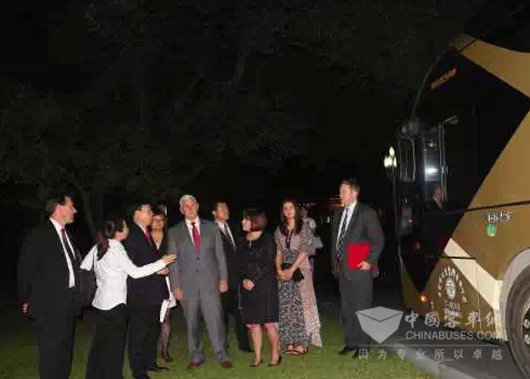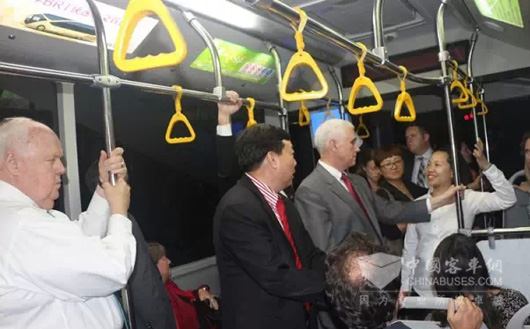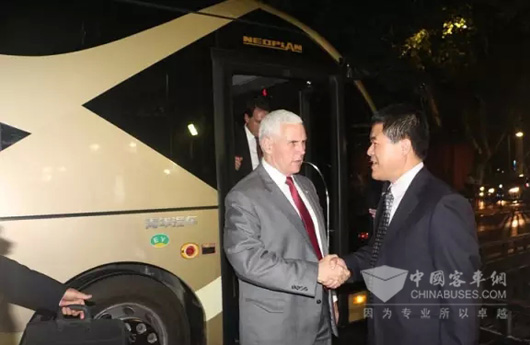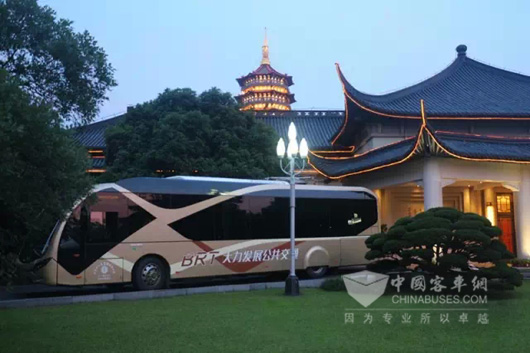In late Mar., the Department of Commerce of Indiana, U.S. visited Zhejiang. During their stay in the province, the delegates held talks with Youngman, the well-renowned bus maker, for introducing its Future Star electric bus into American market. On May 14, Indiana state governor Mike Burns led a delegation and finally stroke a deal with Youngman for its entry into the U.S. market. After taking Future Star electric bus on a BRT route in person, the governor expressed his admiration of the electric vehicle, especially its unique design, travel comforts and environmental efficiency. According to the deal reached by the two parties, the Future Star electric buses will be put into operation in Indiana first, and then they will be promoted across the nation. In the meantime, a factory jointly funded by Youngman and Indiana will be established to produce the vehicles in Indianapolis, the capital city of the state.

In 2004, Youngman rolled out China’s first electric bus which was specially made for Beijing Olympic Games. In 2011, Youngman electric buses went on a trial operation for one year in Kowloon, Hong Kong. In 2014, Youngman electric buses successfully won the favor of Kowloon Bus Company, which launched a worldwide search for the best pollution-free vehicles. On Feb. 12 this year, the world’s first e-BRT electric bus route officially started operation in Jinhua, Zhejiang Province.

Equipped with Youngman’s eighth generation monocoque body structure, the Future Star boasts unparalleled safety standards. Its low floor access, low entry level and wide aisle make it easier for passengers to get on/off the vehicle. With spacious standing area, the bus is capable of loading 99 passengers at the maximum (A normal 12-meter electric bus can only take 60 passengers at most). While on a downward slope or in braking mode, the bus can efficiently store energy with an energy recycling efficiency reaching 30%.

When the bus is at its terminals, it will be recharged in the quick manner as it waits for passengers only five to ten minutes. In doing so, the vehicle is able to operate continually without any mileage limitations. The recharging process is done automatically by just pressing a special button and the bus driver even doesn’t have to get off the bus. Moreover, the recharging equipment only covers an area of 1.5 square meters and can be easily built at bus terminals. With just an investment of 400,000 RMB, the equipment can be made available. In contrast, normal slow recharging equipment costs as high as 200 million RMB.

In terms of batteries, Youngman adopts its own nano carbon lithium batteries, which are inflammable and explosion-proof. Moreover, the batteries are fully recyclable and pollution-free. They boast long life expectancy (10 years guaranteed) can be quickly recharged full.
To strengthen its overall competitiveness and customer satisfaction, Youngman provides one-stop services for its customers, from route planning, recharging station construction, to after-sale training and maintenance.